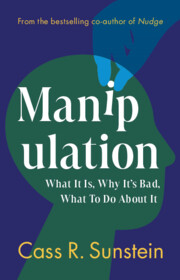Book contents
9 - Artificial Intelligence: Promise and Threat
from Part III - The Future
Published online by Cambridge University Press: 28 August 2025
Summary
“Choice Engines,” powered by Artificial Intelligence (AI) and authorized or required by law, might produce significant increases in human welfare. A key reason is that they can simultaneously (1) preserve autonomy and (2) help consumers to overcome inadequate information and behavioral biases, which can produce internalities, understood as costs that people impose on their future selves. Importantly, AI-powered Choice Engines might also take account of externalities, and they might nudge or require consumers to do so as well. Nonetheless, AI-powered Choice Engines might show behavioral biases. It is also important to emphasize that AI-powered Choice Engines might be enlisted by insufficiently informed or self-interested actors, who might exploit inadequate information or behavioral biases, and thus reduce consumer welfare. AI-powered Choice Engines might also be deceptive or manipulative, and legal safeguards are necessary to reduce the relevant risks.
Information
- Type
- Chapter
- Information
- ManipulationWhat It Is, Why It's Bad, What to Do About It, pp. 164 - 195Publisher: Cambridge University PressPrint publication year: 2025
